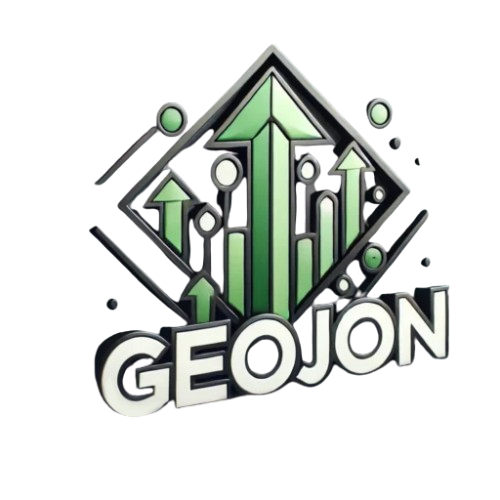
Key Takeaways:
- Perplexity’s Growth: Achieving 100 million weekly queries reflects the increasing adoption of AI-powered search platforms.
- SearchGPT’s Impact: With ChatGPT being queried one billion times daily, SearchGPT is rapidly gaining traction in the search market.
- Market Dynamics: Generative AI search engines are capturing market share from traditional search engines, prompting industry giants to innovate.
- User Preferences: The shift towards AI-driven search indicates a demand for more conversational and precise information retrieval.
Estimated Reading Time: 12 minutes
The Rise of Perplexity: A New Contender in Search
Perplexity AI, founded in 2022, has quickly emerged as a formidable player in the AI search engine arena. By October 2024, it was processing 100 million search queries weekly, a substantial increase from 250 million monthly queries in July of the same year.
This rapid growth can be attributed to Perplexity’s unique approach to information retrieval. Unlike traditional search engines that provide a list of links, Perplexity delivers direct answers by synthesizing information from various sources, offering users concise and relevant responses. This method aligns with the evolving user preference for quick and accurate information, reducing the need to navigate through multiple web pages.
SearchGPT: A Significant Player in AI Search
OpenAI’s SearchGPT has also made a notable impact in the AI search landscape. Integrated into the ChatGPT platform, SearchGPT enhances the chatbot’s capabilities by providing real-time information, including sports scores, stock quotes, and news updates. This integration has led to ChatGPT being queried one billion times daily, highlighting the substantial user engagement with AI-driven search solutions.
The conversational nature of SearchGPT allows users to interact with the search engine more naturally, posing questions as they would in a human dialogue. This feature enhances user experience by delivering precise answers without the need to sift through extensive lists of links, a common characteristic of traditional search engines.
Generative AI Search Engines vs. Google: Shifting Market Dynamics
The emergence of generative AI search engines like Perplexity and SearchGPT is reshaping the search market, challenging Google’s long-standing dominance. While Google continues to hold a significant share of the search market, the rise of AI-driven alternatives is prompting a reevaluation of traditional search methodologies.
A survey by Evercore revealed that 8% of U.S. respondents now use ChatGPT as their primary search engine, up from 1% in June, while Google’s share declined from 80% to 74% in the same period.
Barron’s This shift indicates a growing user preference for AI-powered search solutions that offer more conversational and direct responses.
In response, Google has integrated its own generative AI model, Gemini, to enhance its search capabilities. However, the competition from AI-focused search engines is intensifying, leading to a dynamic and rapidly evolving search landscape.
The Growth Trajectory of Generative AI Search Engines

The adoption of generative AI search engines is accelerating, driven by their ability to provide personalized and contextually relevant information. Perplexity’s user base, for instance, grew by over 20,000% in the past year, reaching approximately 471,000 searches per month as of December 2023.
Similarly, SearchGPT’s integration into ChatGPT has expanded its reach, with the platform handling a billion queries daily. This rapid growth reflects a broader trend of users gravitating towards AI-driven search experiences that offer efficiency and precision.
Implications for the Future of Search
The rise of generative AI search engines signifies a paradigm shift in how users access information. The preference for conversational interfaces and direct answers is reshaping user expectations, compelling traditional search engines to innovate and adapt.
For businesses and content creators, this evolution necessitates a reevaluation of digital strategies. Optimizing content for AI-driven platforms, focusing on natural language processing, and ensuring information is easily accessible to AI algorithms are becoming critical components of maintaining visibility in this new search ecosystem.
FAQs
1. What distinguishes generative AI search engines from traditional search engines?
Generative AI search engines utilize advanced AI models to provide direct, conversational responses to user queries, synthesizing information from multiple sources. In contrast, traditional search engines typically present a list of links, requiring users to navigate to external sites for information.
2. How is Perplexity AI different from SearchGPT?
Perplexity AI focuses on delivering concise, direct answers by synthesizing information from various sources, aiming to reduce the need for users to visit multiple sites. SearchGPT, integrated into ChatGPT, offers real-time information and conversational interactions, providing users with up-to-date data within a chat interface.
3. Is Google losing market share to AI-driven search engines?
Yes, studies indicate that AI-driven search engines are capturing market share from Google. For example, ChatGPT’s share as a primary search engine among U.S. users increased from 1% to 8% between June and December, while Google’s share declined from 80% to 74% in the same period.
4. How are traditional search engines responding to the rise of generative AI search platforms?
Traditional search engines like Google are integrating their own AI models, such as Gemini, to enhance search capabilities and provide more direct, conversational responses to user queries, aiming to compete with emerging AI-driven platforms.
5. What does the future hold for generative AI search engines?
The future of generative AI search engines appears promising, with continued growth in user adoption and technological advancements. As these platforms evolve, they are expected to offer more personalized and context
Search
Recent Posts
ChatGPT Search Goes Account-Free: The Future of
- February 7, 2025
- 13 min read
Strategies to Dominate Consumer Searches with AI
- January 13, 2025
- 15 min read
Boost Visibility: Integrate GEO with SEO Strategies
- January 6, 2025
- 6 min read








